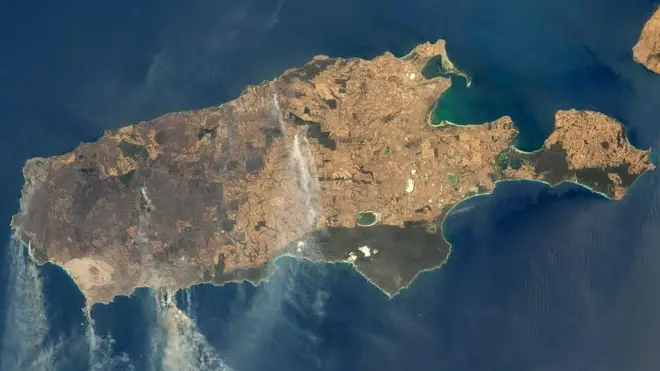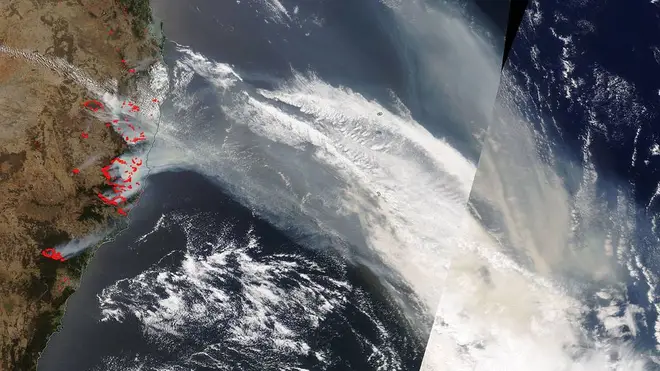
Henry Riley 4am - 7am
14 January 2020, 07:20

Smoke caused by the wildfires which have blighted Australia is set to circle the Earth and return to the country, NASA has said.
The smoke has billowed into the lower stratosphere, reaching 17.7 kilometres above sea level travelling more than 4,000 miles causing hazy skies in Chile, US space agency NASA said this week.
"The smoke is expected to make at least one full circuit around the globe, returning once again to the skies over Australia," NASA said in a statement.
"Over the past week, NASA satellites have observed an extraordinary amount of smoke injected into the atmosphere from the Australian fires and its subsequent eastward dispersal."
On Monday night, Melbourne's air quality was the poorest across the globe, With Victoria's Chief Health Officer, Brett Sutton, saying he expected it would improve during the day on Tuesday.
Bushfires have already burnt more than 5.2 million hectares in NSW and 1.3 million hectares in Victoria this fire season.
The smoke is having a dramatic impact on nearby New Zealand, which has experienced severe air quality issues and a darkening of the colour of the snow on the mountains.
A fleet of NASA satellites 🛰️ working together has been analyzing the aerosols and smoke from the massive fires burning in Australia.https://t.co/93geNvCBnU pic.twitter.com/ZedZ199lvJ
— NASA Goddard (@NASAGoddard) January 9, 2020
Making matters worse on the ground and in the air are wildfire-generated storms, known as pyrocumulonimbus events, which take place when moisture is trapped in the smoke in the cold upper air and forms a cloud that produces dry lightning.
These fire-induced thunderstorms have pushed the smoke to the stratosphere, allowing it to travel much further and affect atmospheric conditions around the world.
Mike Fromm of NASA’s Naval Research Laboratory said that by the agency's measures, it was "the most extreme pyrocumulonimbus storm outbreak in Australia".

The fires have been burning since September and have killed 27 people, destroyed more than 2,000 homes and led to the evacuations of thousands of people.
Thousands more rallied late on Friday in Sydney and Melbourne, calling for the country's prime minister to be sacked and for Australia to take tougher action on global warming.